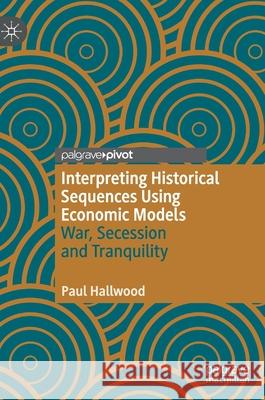Interpreting Historical Sequences Using Economic Models: War, Secession and Tranquility » książka
topmenu
Interpreting Historical Sequences Using Economic Models: War, Secession and Tranquility
ISBN-13: 9783030538538 / Angielski / Twarda / 2020 / 126 str.
Kategorie:
Kategorie BISAC:
Wydawca:
Palgrave MacMillan
Język:
Angielski
ISBN-13:
9783030538538
Rok wydania:
2020
Wydanie:
2020
Ilość stron:
126
Waga:
0.32 kg
Wymiary:
21.01 x 14.81 x 0.97
Oprawa:
Twarda
Wolumenów:
01
Dodatkowe informacje:
Wydanie ilustrowane











